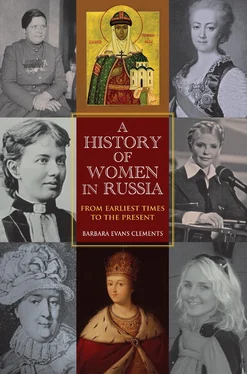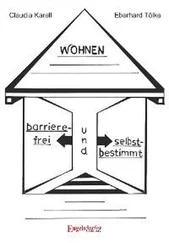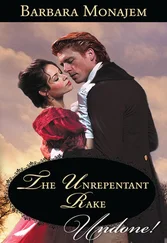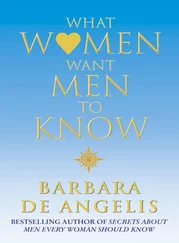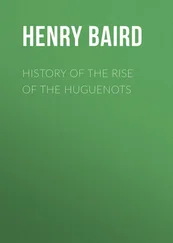Tymoshenko, Yulia. http://www.tymoshenko.ua. Accessed October 15, 2007, and December 12, 2010.
Universitetskaia set’ gendernym issledovaniiam dlia stran byvshego SSSR. http://www.gender.univer.kharkov.ua. Accessed October 15, 2007.
Abrams, Lynn. The Making of Modern Woman: Europe, 1789–1918 . London: Longman, 2002.
Abramson, David. “Engendering Citizenship in Postcommunist Uzbekistan.” In Post-Soviet Women Encountering Transition: Nation Building, Economic Survival, and Civic Activism, edited by Kathleen Kuehnast and Carol Nechemias. Washington, D.C.: Woodrow Wilson Center Press, 2004.
Adelman, Deborah. The Children of Perestroika: Moscow Teenagers Talk about Their Lives and the Future . Armonk, N.Y.: Sharpe, 1992.
Akiner, Shirin. “Between Tradition and Modernity: The Dilemma Facing Contemporary Central-Asian Women.” In Post-Soviet Women: From the Baltic to Central Asia, edited by Mary Buckley. Cambridge: Cambridge University Press, 1997.
Alexiyevich, S. War’s Unwomanly Face. Translated from the Russian by Keith Hammond and Lyudmila Lezhneva. Moscow: Progress, 1985.
Alexopoulos, Golfo. Stalin’s Outcasts: Aliens, Citizens, and the Soviet State, 1926–1936 . Ithaca, N.Y.: Cornell University Press, 2003.
Anderson, Bonnie S., and Judith P. Zinsser. A History of Their Own: Women in Europe from Prehistory to the Present. 2 vols. Revised edition. Oxford: Oxford University Press, 2000.
Applebaum, Anne. Gulag: A History. New York: Anchor, 2003.
Armitage, Susan. “Through Women’s Eyes: A New View of the West.” In The Women’s West, edited by Susan Armitage and Elizabeth Jameson. Norman: University of Oklahoma Press, 1987.
Ashwin, Sarah, and Elain Bowers. “Do Russian Women Want to Work?” In Post-Soviet Women: From the Baltic to Central Asia, edited by Mary Buckley. Cambridge: Cambridge University Press, 1997.
Attwood, Lynne. “Celebrating the ‘Frail-Figured Welder’: Gender Confusion in Women’s Magazines of the Khrushchev Era.” Slavonica 8, no. 2 (2002): 159–77.
Avrich, Paul. Russian Rebels, 1600–1800. New York: Norton, 1972.
Baker, Peter, and Susan Glasser. Kremlin Rising: Vladimir Putin’s Russia and the End of Revolution . New York: Scribner, 2005.
Barber, John, and Mark Harrison. The Soviet Home Front, 1941–1945: A Social and Economic History of the USSR in World War II. London: Longman, 1991.
Barry, Ellen. “Russian Dissident’s Passion Endures Despite Tests.” New York Times, January 12, 2010.
Bastug, Sharon, and Nuran Hostacsu. “The Price of Value: Kinship, Marriage, and Meta-narratives of Gender in Turkmenistan.” In Gender and Identity Construction: Women of Central Asia, the Caucasus, and Turkey, edited by Feride Acar and Ayse Günes-Ayata. Leiden: Brill, 2000.
Beevor, Anthony, and Luba Vinogradova. A Writer at War: Vasily Grossman with the Red Army, 1941–1945. New York: Pantheon, 2005.
Berkhoff, Karel C. Harvest of Despair: Life and Death in Ukraine under Nazi Rule . Cambridge, Mass.: Belknap, 2004.
Bernstein, Laurie. Sonia’s Daughters: Prostitutes and Their Regulation in Imperial Russia . Berkeley: University of California Press, 1995.
Black, J. L. Citizens for the Fatherland: Education, Educators, and Pedagogical Ideas in Eighteenth-Century Russia . New York: East European Monographs, 1979.
Blobaum, Robert E. “The ‘Woman Question’ in Russian Poland.” Journal of Social History 35, no. 4 (2002). Accessed February 18, 2005, on http://www.questia.com.
Blum, Jerome. Lord and Peasant in Russia from the Ninth to the Nineteenth Century . Princeton: Princeton University Press, 1961.
Bohac, Rodney. “Widows and the Russian Serf Community.” Russia’s Women: Accommodation, Resistance, Transformation, edited by Barbara Evans Clements, Barbara Alpern Engel, and Christine D. Worobec. Berkeley: University of California Press, 1991.
Bohachevsky-Chomiak, Martha. Feminists Despite Themselves: Women in Ukrainian Community Life, 1884–1939 . Toronto, Ont.: Canadian Institute of Ukrainian Study, 1988.
Bolt, Christine. Feminist Ferment: “The Woman Question”in the U.S.A. and England, 1870–1940 . London: Routledge, 1995.
Boniece, Sally A. “The Spiridonova Case, 1906: Terror, Myth, and Martyrdom.” Kritika 4, no. 3 (Summer 2003): 571–606.
Boxer, Marilyn J., and Jean H. Quataert, editors. Connecting Spheres: European Women in a Globalizing World, 1500 to the Present. Second edition. Oxford: Oxford University Press, 2000.
Bradley, Joseph. Muzhik and Muscovite: Urbanization in Late Imperial Russia. Berkeley: University of California Press, 1985.
Bridger, Susan. “The Heirs of Pasha: The Rise and Fall of the Soviet Woman Tractor Driver.” In Gender in Russian History and Culture, edited by Linda Edmondson. Houndmills, UK: Palgrave, 2001.
——. “Rural Women and the Impact of Economic Change.” In Post-Soviet Women: From the Baltic to Central Asia, edited by Mary Buckley. Cambridge: Cambridge University Press, 1997.
——. Women in the Soviet Countryside: Women’s Roles in Rural Development in the Soviet Union. Cambridge: Cambridge University Press, 1987.
Brower, Daniel R. The Russian City between Tradition and Modernity, 1850–1900. Berkeley: University of California Press, 1990.
Browning, Genia K. Women and Politics in the USSR: Consciousness Raising and Soviet Women’s Groups . New York: St. Martin’s, 1987.
Bruno, Marta O. “Women and the Culture of Entrepreneurship.” In Post-Soviet Women: From the Baltic to Central Asia, edited by Mary Buckley. Cambridge: Cambridge University Press, 1997.
Bucher, Greta. Women, the Bureaucracy, and Daily Life in Postwar Moscow, 1945–1953 . New York: Columbia, 2006.
Buckley, Mary. “Adaptation of the Soviet Women’s Committee: Deputies’ Voices from ‘Women of Russia.’” In Post-Soviet Women: From the Baltic to Central Asia, edited by Mary Buckley. Cambridge: Cambridge University Press, 1997.
——. Mobilizing Soviet Peasants: Heroines and Heroes of Stalin’s Fields . Lanham, Md.: Rowman and Littlefield, 2006.
Butler, Francis. “Ol’ga’s Conversion and the Construction of Chronicle Narrative.” The Russian Review 67, no. 2 (April 2008): 230–42.
——. “A Woman of Words: Pagan Ol’ga in the Mirror of Germanic Europe.” Slavic Review 63, no. 4 (Winter 2004): 771–93.
Caiazza, Amy. “Committee of Soldiers’ Mothers of Russia (Komitet soldatskikh materei Rossii) (1989–).” In Encyclopedia of Russian Women’s Movements, edited by Norma Corigliano Noonan and Carol Nechemias. Westport, Conn.: Greenwood, 2001.
Cavender, Mary Wells. “‘Kind Angel of the Soul and Heart’: Domesticity and Family Correspondence among the Pre-emancipation Russian Gentry.” The Russian Review 61, no. 3 (July 2002): 391–408.
Chapman, Janet G. “Equal Pay for Equal Work?” In Women in Russia, edited by Dorothy Atkinson, Alexander Dallin, and Gail Warshofsky Lapidus. Stanford, Calif.: Stanford University Press, 1977.
Chatterjee, Choi. “Soviet Heroines and the Language of Modernity, 1930–39.” In Women in the Stalin Era, edited by Melanie Ilic. Houndmills, UK: Palgrave, 2001.
Clements, Barbara Evans. “The Birth of the New Soviet Woman.” In Bolshevik Culture: Experiment and Order in the Russian Revolution, edited by Abbott Gleason, Peter Kenez, and Richard Stites. Bloomington: Indiana University Press, 1985.
Читать дальше
